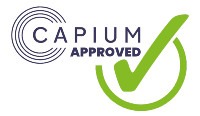No matter your business’s structure, you’ll be responsible for meeting your tax obligations with HMRC every year: otherwise, you risk investigation and penalties.
Tax payments and calculations vary depending on how you run your business, so making sure you know how to get it right is essential.
If you run an unincorporated business, this is how you would go about calculating your upcoming tax bill.
Calculating unincorporated business tax
The tax treatment of unincorporated businesses can be a lot clearer and easier to understand than that of an incorporated business.
The business’s profits of the sole trader or partners who own the business are subject to income tax and National Insurance contributions (NICs).
This means a sole trader or partner with a taxable profit of no more than £100,000 will have their first £12,570 of earnings tax-free due to their personal allowance. The next £37,400 will be taxed at 20%, with any further profits taxed at 40%. Naturally, this is assuming that they have no extra taxable income, as this would also affect their bill.
Once income tax has been deducted, you’ll need to calculate how much NI you have to pay based on your NIC band. A complete list of NIC thresholds can be found on the Government website.
As your business is unincorporated, you won’t have to fill out and file a company tax return or any statutory accounts with Companies House.
Instead, you’ll be required to fill out a self-assessment tax return. If you run the business as part of a partnership, you’ll need to complete a partner’s tax return.
Changes to the basis period
Changes are coming into effect in the next few years, which will affect the way accounts are drawn up for some unincorporated businesses.
This new measure will ultimately see tax liabilities for all unincorporated entities aligned to the tax year instead of taxing profits on a ‘current-year basis’. HMRC has published a full report on the reform, which can be found on its website (though the timeline may change with the newly announced delay to Making Tax Digital).
This will see a business’s profit or loss for a tax year being the profit or loss arising in the tax year itself, regardless of its accounting reference date. This will remove the basis period rules and prevent the creation of further overlap relief.
Benefits and relief
If you run your business as a sole trader or a partnership, there are a few reliefs you can take advantage of that an incorporated business cannot.
If your business makes a loss, you’re usually able to offset it against your total taxable income for the tax year. Alternatively, these losses can sometimes be carried back or forwards. Should you find your business is at a loss, the team at Harries Watkins Jones can offer you advice on the best way to manage it.
Unincorporated businesses are potentially eligible for gift relief and business asset disposal relief, but you’ll need to check the rules thoroughly before applying for these.
If you need any help calculating and filing your business taxes, get in touch with the team at Harries Watkins Jones. Our experts have years of experience handling business accounts and working with HMRC.


